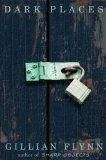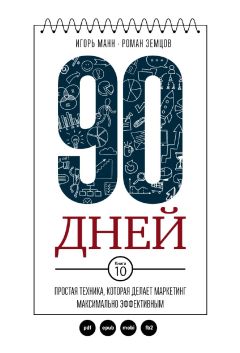Flynn, Gillian - Sharp_Objects
She left and I waited in the bathtub for an hour for something to happen. Stomach rumblings, dizziness, a fever. I sat as still as I do on an airplane, when I worry one rash movement will send us into a tailspin. Nothing. Amma was in my bed when I opened the door.
“You are so gross,” she said, arms lazily crossed over her. “I cannot believe you fucked a babykiller. You are just as nasty as she said.”
“Don’t listen to Momma, Amma. She’s not a trustworthy person. And don’t…” What? Take anything from her? Say it if you think it, Camille. “Don’t turn on me, Amma. We hurt each other awfully quickly in this family.”
“Tell me about his dick, Camille. Was it nice?” Her voice was the same cloying, put-on she’d used with me earlier, but she wasn’t detached: She squirmed under my sheets, her eyes a bit wild, face flushed.
“Amma, I don’t want to talk about this with you.”
“You weren’t too grown up a few nights ago, sister. Are we not friends anymore?”
“Amma, I’ve got to lie down now.”
“Hard night, huh? Well, just wait—everything’s going to get worse.” She kissed me on the cheek and slid out of the bed, clattered down the hall in her big plastic sandals.
Twenty minutes later the vomiting began, wrenching, sweaty upheavals in which I pictured my stomach contracting and bursting like a heart attack. I sat on the floor next to the toilet between hacking, propped against the wall in only an ill-fitting T-shirt. Outside I could hear blue jays bickering. Inside, my mother called Gayla’s name. An hour later and I was still vomiting, off-green nauseous bile that came out of me like syrup, slow and sinewy.
I pulled on some clothes and brushed my teeth gingerly—inserting too much of the toothbrush in my mouth made me start gagging again.
Alan was sitting on the front porch reading a large, leather-bound book entitled only Horses. A bowl made of bumpy orange carnival glass perched on the armrest of his rocking chair, a lump of green pudding at its center. He was in a blue seersucker suit, a Panama hat atop his head. He was serene as a pond.
“Your mother know you’re leaving?”
“I’ll be back soon.”
“You’ve done much better with her lately, Camille, and for that I thank you. She seems quite improved. Even her dealings with…Amma are smoother.” He always seemed to pause before his own daughter’s name, as if it had a slightly dirty connotation.
“Good, Alan, good.”
“I hope you’re feeling better about yourself too, Camille. That’s an important thing, liking oneself. A good attitude infects just as easily as a bad one.”
“Enjoy the horses.”
“I always do.”
The drive to Woodberry was punctuated with lurching twists into the curb where I threw up more bile and a little blood. Three stops, one in which I vomited down the side of the car, unable to get the door open fast enough. I used my old warm cup of strawberry pop and vodka to wash it off.
St. Joseph’s Hospital in Woodberry was a huge cube of golden brick, cross-sectioned with amber-shaded windows. Marian had called it the waffle. It was a mellow place for the most part: If you lived farther west, you went to Poplar Bluff for your health; farther north, to Cape Girardeau. You only went to Woodberry if you were trapped in the Missouri boot heel.
A big woman, her bust comically round, was sending off Do Not Disturb signals from behind the Information desk. I stood and waited. She pretended to be intently reading. I stood closer. She trailed an index finger along each line of her magazine and continued to read.
“Excuse me,” I said, my tone a mix of petulance and patronizing that even I disliked.
She had a mustache and yellowed fingertips from smoking, matching the brown canines that peeked out from beneath her upper lip. The face you give the world tells the world how to treat you, my mother used to say whenever I resisted her grooming. This woman could not be treated well.
“I need to track down some medical records.”
“Put a request in with your doctor.”
“My sister’s.”
“Have your sister put in a request with her doctor.” She flipped the page of her magazine.
“My sister is dead.” There were gentler ways of putting this, but I wanted the woman to snap to. Even still, her attention was grudging.
“Ah. Sorry for your loss. She die here?” I nodded.
“Dead on Arrival. She had a lot of emergency treatment here and her doctor was based here.”
“What was the date of death?”
“May 1, 1988.”
“Jesus. That’s a pace back. Hope you’re a patient woman.”
Four hours later, after two screaming matches with disinterested nurses, a desperate flirtation with a pale, fuzzy-faced administrator, and three trips to the bathroom to vomit, Marian’s files were flopped on my lap.
There was one for each year of her life, progressively thicker. Half the doctors’ scratches I couldn’t understand. Many involved tests ordered and completed, never to any use. Brain scans and heart scans. A procedure involving a camera threaded down Marian’s throat to examine her stomach as it was filled with radiant dye. Heart-apnea monitors. Possible diagnoses: diabetes, heart murmur, acid reflux, liver disease, pulmonary hypertension, depression, Crohn’s disease, lupus. Then, a feminine, pink sheet of lined stationery. Stapled to a report documenting Marian’s weeklong hospital stay for the stomach tests. Proper, rounded cursive, but angry—the pen had indented each word deeply into the paper. It read:I am a nurse who has attended Marian Crellin for her tests this week, as well as several previous in-patient stays. I am of the very strong [“very strong” underlined twice] opinion that this child is not sick at all. I believe were it not for her Mother, she would be perfectly healthy. The child exhibits signs of illness after spending time alone with the Mother, even on days when she has felt well up until maternal visits. Mother shows no interest in Marian when she is well, in fact, seems to punish her. Mother holds child only when she is sick or crying. I and several other nurses, who for political reasons choose not to sign their names to my statement, believe strongly the child, as well as her sister, should be removed from the home for further observation.Beverly Van Lumm
Righteous indignation. We could have used more of that. I pictured Beverly Van Lumm, busty and tight lipped, hair gathered in a determined bun, scrawling out the letter in the next room after she was forced to leave limp Marian in my mother’s arms, only a matter of time until Adora cried out for nursing attention.
Within an hour I had tracked the nurse down in the pediatric ward, which was actually just a big room holding four beds, only two of them in use. One little girl was reading placidly, the little boy next to her was sleeping upright, his neck held in a metal brace that seemed to screw right into his spine.
Beverly Van Lumm was not a bit like I pictured. Maybe late fifties, she was tiny, her silver hair cropped tight to her head. She wore flowered nursing pants and a bright blue jacket, a pen propped behind her ear. When I introduced myself, she seemed to immediately remember me, and appeared none too surprised I’d finally shown up.
“It’s so nice to meet you again after all these years, although I hate the circumstances,” she said in a warm, deep voice. “Sometimes I daydream that Marian herself comes in here, all grown up, maybe with a baby or two. Daydreams can be dangerous.”
“I came because I read your note.”
She snorted, capped her pen.
“Bully lot of good that did. If I hadn’t been so young and nervous and awestruck by the great docteurs around here, I would have done more than write a note. ’Course back in that time, accusing mothers of such a thing was almost unheard of. Nearly got me fired. You never really want to believe such a thing. Like something out of Brothers Grimm, MBP.”
“MBP?”
“Munchausen by Proxy. The caregiver, usually the mother, almost always the mother, makes her child ill to get attention for herself. You got Munchausen, you make yourself sick to get attention. You got MBP, you make your child sick to show what a kind, doting mommy you are. Brothers Grimm, see what I mean? Like something a wicked fairy queen would do. I’m surprised you haven’t heard of it.”
“It sounds familiar,” I said.
“It’s becoming quite a well-known disease. Popular. People love new and creepy. I remember when anorexia hit in the eighties. The more TV movies on it, the more girls starved themselves. You always seemed okay, though. I’m glad.”
“I’m okay, mostly. I have another sister, a girl born after Marian, I worry about.”
“You should. Dealing with an MBP mom—it doesn’t pay to be the favorite. You were lucky your mother didn’t take more of an interest in you.”
A man in bright green scrubs zipped down the hallway in a wheelchair, followed by two fat laughing guys, similarly outfitted.
“Med students,” Beverly said, rolled her eyes.
“Did any doctors ever follow up on your report?”
“I called it a report, they saw it as some childless, jealous nurse’s pettiness. Like I said, different time. Nurses get a leetle more respect now. Just a leetle. And to be fair, Camille, I didn’t push it. I was just off a divorce, I needed to keep my job, and bottom line was, I wanted someone to tell me I was wrong. You need to believe you’re wrong. When Marian died, I drank for three days. She was buried before I hinted around again, asked the head of pediatrics if he’d seen my note. I was told to take the week off. I was one of those hysterical women.”
My eyes were suddenly stinging and wet, and she took my hand.
“I’m sorry, Camille.”
“God, I’m so angry.” Tears spilled down my cheeks and I rubbed them away with the back of my hand until Beverly gave me a tissue pack. “That it ever happened. That it took this long for me to figure it out.”
“Well, sweetheart, she’s your mother. I can’t imagine what it must be like for you to come to grips with it. At least it looks like justice will be served now. How long has the detective been on the case?”
“Detective?”
“Willis, right? Good-looking kid, sharp. He Xeroxed every single page in Marian’s files, quizzed me until my fillings hurt. Didn’t tell me there was another little girl involved. He told me you were okay, though. I think he has a crush on you—he got all squirmy and bashful when he mentioned you.”
I stopped crying, wadded up the tissues, and tossed them in the trash next to the reading girl. She glanced into the basket curiously, as if the mail had just come in. I said my thanks to Beverly and made my way out, feeling wild and in need of blue sky.
Beverly caught up to me at the elevator, took both my hands in hers. “Get your sister out of that home, Camille. She’s not safe.”
Between Woodberry and Wind Gap was a biker bar off exit 5, a place that sold six-packs to go with no call for ID. I’d gone there a lot in high school. Next to the dartboard was a pay phone. I grabbed a handful of quarters and phoned Curry. Eileen picked up, as usual, that voice soft and steady as a hill. I started sobbing before I got more than my name out.
“Camille, sweetheart, what is it? Are you okay? Of course you’re not okay. Oh, I’m so sorry. I told Frank to get you out of there after your last call. What is it?”
I kept sobbing, couldn’t even think what to say. A dart hit the board with a solid thunk.
“You aren’t…hurting yourself again? Camille? Sweetheart, you’re scaring me.”
“My mother…” I said, before collapsing again. I was heaving with sobs, purging from deep in my belly, nearly bent over.
“Your mother? Is she all right?”
“Noooo.” A long wail like a child. A hand over the phone and Eileen’s urgent murmur of Frank’s name, the words something’s happened…horrible, a silence of two seconds and the crash of glass. Curry got up from the table too quickly, his tumbler of whiskey wobbling to the floor. Just a guess.
“Camille, talk to me, what’s wrong.” Curry’s voice was gruff and startling like hands on both my arms giving me a shake.
“I know who did it, Curry,” I hissed. “I know it.”
“Well, that’s no reason to cry, Cubby. The police made an arrest?”
“Not yet. I know who did it.” Thunk on the dartboard.
“Who? Camille, talk to me.”
I pressed the phone to my mouth and whispered, “My mother.”
“Who? Camille, you have to speak up. Are you at a bar?”
“My mother did it,” I yelped into the phone, the words coming out like a splatter.
Silence for too long. “Camille, you are under a lot of stress, and I was very wrong to send you down there so soon after…Now, I want you to go to the nearest airport and fly back here. Don’t get your clothes, just leave your car and come home here. We’ll deal with all that stuff later. Charge the ticket, I’ll pay you back when you get home. But you need to come home now.”
Home home home, like he was trying to hypnotize me.
“I’ll never have a home,” I whimpered, began sobbing again. “I have to go take care of this, Curry.” I hung up as he was ordering me not to.
Richard I tracked down at Gritty’s having a late supper. He was looking at clippings from a Philadelphia paper about Natalie’s scissors attack. He nodded grudgingly at me as I sat down opposite him, looked down at his greasy cheese grits, then back up to study my swollen face.
“You okay?”
“I think my mother killed Marian, and I think she killed Ann and Natalie. And I know you think that, too. I just got back from Woodberry, you fuck.”
The sorrow had turned to outrage somewhere between exits 5 and 2. “I can’t believe that all the while you were making time with me, you were just trying to get information about my mother. What kind of sick fuck are you?” I was shaking, the words stuttering out of my mouth.
Richard took a ten out of his wallet, tucked it under the plate, walked to my side of the table, and took my arm. “Come with me outside, Camille. This isn’t the place.” He walked me through the doors, to the passenger side of the car, his arm still on mine, and put me inside.
He drove us in silence up the bluff, his hand shooting up whenever I tried to say something. I finally turned away from him, aimed my body at the window, and watched the woods flash by in a blue-green rush.
We parked in the same spot where we’d overlooked the river weeks before. It roiled down below us in the dark, the current catching the moonlight in patches. Like watching a beetle hustle through fall leaves.
“Now my turn for the cliché,” Richard said, his profile to me. “Yes, I was first interested in you because I was interested in your mother. But I genuinely fell for you. As much as you can fall for a person as closed off as you are. Of course, I understand why. At first I thought I’d formally question you, but I didn’t know how close you and Adora were, I didn’t want you to tip her off. And I wasn’t sure, Camille. I wanted time to study her a bit more. It was only a hunch. Purely a hunch. Gossip here and there, about you, about Marian, about Amma and your mother. But it’s true that women don’t fit the profile for this kind of thing. Not serial child murder. Then I started to look at it differently.”




